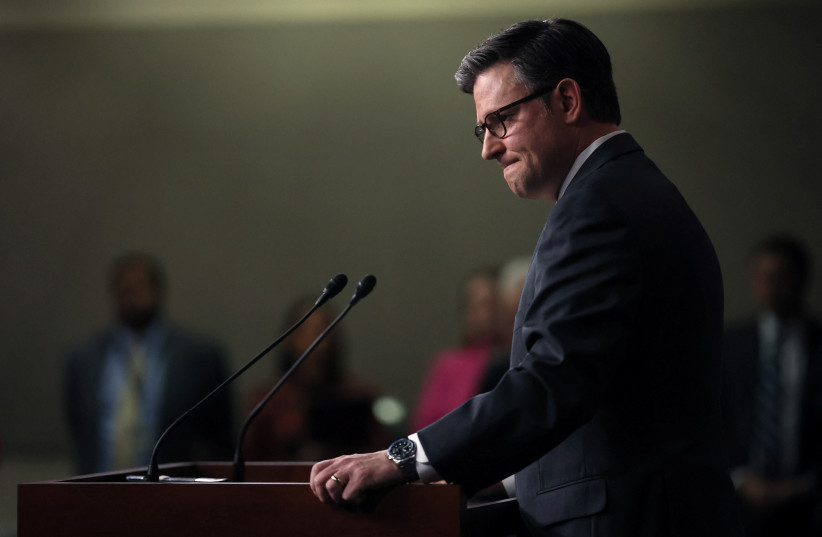President Joe Biden will meet with leaders of the House and Senate on Tuesday pushing for the national security supplemental bill, according to the White House, at a critical moment for military aid for Ukraine and Israel -- and humanitarian assistance for Gaza.
Biden is slated to meet with the "Big Four" leaders, Senate Majority Leader Chuck Schumer (D-NY), Senate Minority Leader Mitch McConnell (R-KY), House Speaker Mike Johnson (R-LA) and House Minority Leader Hakeem Jeffries (D-NY).
The supplemental bill passed through the Senate on Feb. 13 after it was stripped of its components relating to border policy.
Johnson and many of his right-wing colleagues indicate they won't accept any supplemental bill that doesn't contain border policy.
"If Speaker Johnson put the national security bill on the House floor, it would pass with strong bipartisan support," Schumer said Monday night on X. "With this urgent aid package, Congress can help ensure Ukraine wins the war, ensure Putin is not victorious, ensure that democracy can thrive in the 21st century."

Schumer just returned from an official visit to Ukraine where he met with President Volodymyr Zelenskyy.
On Monday aboard Air Force One, White House Press Secretary Karine Jean-Pierre reiterated the administration's position that the bill needs to be passed.
"If that national security supplemental were to go on the floor of the House, it would get bipartisan support. We know this," Jean-Pierre said. "We've heard from Republicans who have said this. And we're going to continue to push forward."
Jean-Pierre did not have any updates on hostage negotiations.
Partial government shutdown looms
Schumer and Johnson are at increasing odds as a partial government shutdown looms on March 1, when some governmental agencies will run out of funding. The Defense Department faces a March 8 deadline, according to Reuters.
Senate Majority Leader Chuck Schumer, a Democrat, said in a statement Sunday that there still was no deal and called on House Speaker Mike Johnson, a Republican, to "step up" and strike a bipartisan compromise, despite objections from his party's most conservative lawmakers.
Johnson later Sunday posted on X that Republicans were still negotiating in good faith and contended many of the points still up for debate were later demands from Democrats. He said he hoped to reach an outcome "as soon as possible."
